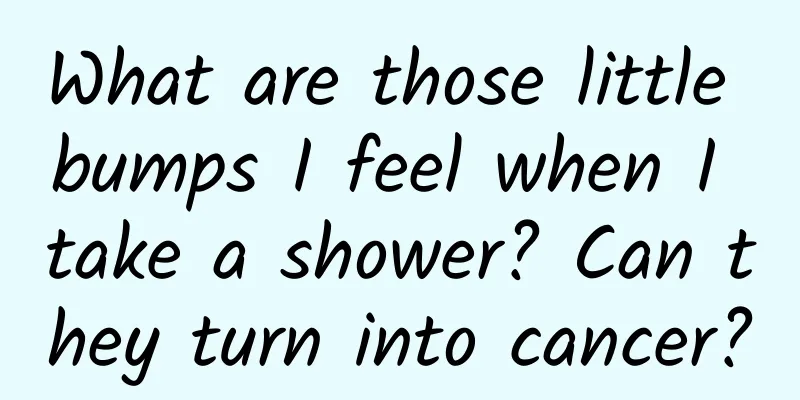These signals of "over-fatigue" are alarms from the body, so you must take them seriously!

|
How long has it been since you had a good rest? As soon as this question is asked, office workers start to cover their chests and frown, students start to sigh, and mothers with children want to cry... The intensity of work and the pressure of life make modern people busy, and "fatigue" has become one of the necessary characteristics of modern people. Generally speaking, if you only feel ordinary fatigue occasionally, you can usually recover your energy by just stopping to rest or taking a nap, and this fatigue is normal. However, if the fatigue still cannot be relieved through normal rest, then you need to consider whether you are sick. In recent years, news about sudden death from overwork due to physical fatigue has become common. Yesterday, the "6 manifestations of overwork" once again became a hot search. However, there is actually no such disease as "overwork" in medicine. If the body has some symptoms due to overwork, it actually means that it has what is called chronic fatigue syndrome in medicine. Image source: Sina Weibo What is chronic fatigue syndrome? Chronic Fatigue Syndrome (CFS) is a new disease officially named by the Centers for Disease Control and Prevention in the United States in 1988. In 2015, the National Institute of Medicine renamed CFS as systemic exercise intolerance disease (SEID). However, the name "CFS" is more popular and straightforward, so it is still used in this article. Chronic fatigue syndrome is a chronic fatigue symptom that cannot be explained by general fatigue and disease conditions. Currently, there is no effective laboratory test or imaging test to diagnose chronic fatigue syndrome. However, patients usually have non-specific symptoms such as fever, pain, inattention, and impaired cognitive ability during clinical examinations. That is to say, when other reasons (including drug side effects) cannot explain the patient's physical fatigue and other symptoms, a diagnosis of chronic fatigue syndrome can be considered. So how do you tell if a person has chronic fatigue syndrome? In 1994, the Centers for Disease Control and Prevention of the United States gave several diagnostic criteria: 1. Chronic fatigue that is clinically assessed, unexplained, persistent or recurrent, which is new or has a clear onset time, is not congenital, is not caused by the work being done, cannot be relieved by rest, and the patient's occupational ability, educational ability, social ability and personal life have substantially declined compared to before the onset of the disease. 2. Four or more of the following symptoms occur simultaneously, and these symptoms have persisted or recurred for 6 months or longer: ① Short-term memory loss or inability to concentrate; ② Sore throat; ③Swelling and pain of lymph nodes in the neck or armpits; ④Muscle soreness; ⑤Multiple joint pain without redness or swelling; ⑥Headache, but the type, pattern and severity of the attack are different from before; ⑦Energy cannot be restored after sleep; ⑧ Fatigue after physical or mental work lasts for more than 24 hours. 3. Eliminate chronic fatigue caused by other diseases or bad habits. This is the clinical diagnostic standard for chronic fatigue syndrome. So in life, when certain symptoms appear in the body, how can we judge whether our body is in a state of chronic fatigue? How to judge your body Are you suffering from chronic fatigue? The main patient population of chronic fatigue syndrome has shifted from manual laborers to mental laborers. It is more common among practitioners in the Internet, medical, media, science and education industries, and is showing a trend of getting younger. However, fatigue is a subjective feeling that is difficult to define and describe with accurate words or sentences, so the medical community has not yet formed a unified evaluation index. However, in recent years, researchers have developed a number of fatigue assessment scales, such as the Fatigue Scale (FS-14), the Health Status Questionnaire (SF-36), the Psychological Assessment Scale (SCL90), etc. We can also combine the indicators in these assessment scales to preliminarily determine whether the body is in a state of chronic fatigue. Here, we provide a self-assessment scale, and you can test yourself against the indicators. Chronic fatigue self-assessment form 1. I don’t want to get up in the morning, but even if I force myself to get up, I still feel tired all over; 2. Difficulty concentrating when working or reading; 3. Speak weakly; 4. Unwilling to communicate with colleagues and often silent after returning home; 5. Always stretching, yawning, and sleepy; 6. Too lazy to climb stairs, often stumbling when going upstairs; 7. I don’t want to run to catch the bus when it’s coming; 8. Likes to lie on the sofa and raises legs to feel comfortable; 9. Stiff limbs, heavy legs, and trembling hands; 10. Poor appetite; 11. Palpitations and chest tightness, an indescribable feeling of discomfort; 12. Frequent bloating, diarrhea or constipation; 13. I have a bad memory, and I tend to forget things that are close to me. 14. Difficulty falling asleep or waking up early, and constantly dreaming after falling asleep. If 3 to 4 of the above indicators are met, it means that the body may be in a state of mild fatigue; if 5 to 7 items are met, it means that the body may be in a state of moderate fatigue; if 8 or more items are met, it means that the body may be in a state of severe fatigue. At this time, you can consider seeing a doctor and consider whether you have chronic fatigue syndrome. Don’t underestimate the above symptoms, and don’t think they are common “small problems” for busy modern people. In recent years, how many bosses and executives have died on treadmills in the early morning? How many workers have died after working overtime all night? Chronic fatigue is a warning to the body, reminding you that your body has exceeded its normal load. At this time, if you stop and rest more and make adequate adjustments, you can reduce the damage to your body. If you do not pay attention to it and do not rest and adjust in time, then "small problems" may lead to "big problems", seriously threatening our physical and mental health and even life safety. Do these things well Stay away from chronic fatigue Chronic fatigue syndrome is completely preventable. In a fast-paced work and life, we must do the following things to stay away from chronic fatigue. 8 things to keep you away from chronic fatigue 1. Maintain a regular work and rest schedule, do not stay up late, and ensure 7 to 8 hours of sleep every day. 2. Arrange time reasonably, adjust the rhythm of life, and avoid long-term continuous work and study. 3. Avoid sitting for long periods of time and avoiding long periods of high-speed brain activity. Take a 5-10 minute break after every hour of work or study. You can stand up and move your body, take a walk, or twist your neck and waist. 4. Ensure rest and entertainment time at night and on weekends, do things you like, and cultivate hobbies. 5. Eat on time, control total calorie intake, reduce unnecessary social activities, and eat less snacks and late-night snacks. 6. Develop exercise habits, perform 150 to 300 minutes of moderate-intensity or 75 to 150 minutes of high-intensity aerobic activity per week, and perform muscle strength training more than twice a week. 7. Learn to release stress, give negative emotions an outlet, and maintain a positive and optimistic attitude towards life. 8. Have regular physical examinations and pay attention to your physical health. In short, the body is a loyal and reliable "intelligence agent". When you feel tired, you must take immediate measures to eliminate the fatigue and restore your body to health. Never ignore it and develop chronic fatigue syndrome. Author: Zeng Xinyue, a popular science writer Reviewer: Tang Qin, Director and Researcher of the Science Popularization Department of the Chinese Medical Association |
Recommend
How to take care after a painless abortion
Nowadays, painless abortion is a popular surgery,...
What are the precautions for rechecking prolactin?
Prolactin is a very important hormone in the huma...
Reminder! Don’t take skin itching lightly, it may be a “danger signal” sent by the body!
Itching is a very common manifestation of physica...
Why do pregnant women have pimples under their armpits?
If a woman develops lumps under her armpits after...
Is it okay for women to eat mints every day?
Mint candy is a kind of candy made from mint as t...
Acyclovir during early pregnancy
Acyclovir is mainly used to treat simple genital ...
Pain in left lower abdomen after menstruation
The reason for the dull pain in the lower abdomen...
What to do if you bleed one month into pregnancy
Pregnancy is very important for every female frie...
Why do some people have Mediterranean hair but very thick eyebrows?
Reviewer of this article: Zhou Xiaobo, Doctor of ...
Women with cold body are more likely to get cancer. These can help you drive away the cold and dampness.
Traditional Chinese medicine believes that cold a...
What is the reason why the uterus feels hard?
The uterus is the foundation of the female body, ...
What happens if there is stringy mucus during menstruation?
When women have their period, menstrual blood wil...
Why does the cactus rot? What should I do if the cactus roots are rotten so that they can take root?
Cactus and cactus are plants that originally grew...
Is foot soaking good for the ovaries? What should I pay attention to?
For female friends, there are many special parts ...
Can white kidney beans block carbon water and lose weight easily? Fat: Is it so easy for me to lose weight?
gossip White kidney beans can block carbon water ...




![[Smart Farmers] Food Talk: How to Regulate the Addition of Food Additives?](/upload/images/67f1c24d7ccfd.webp)




